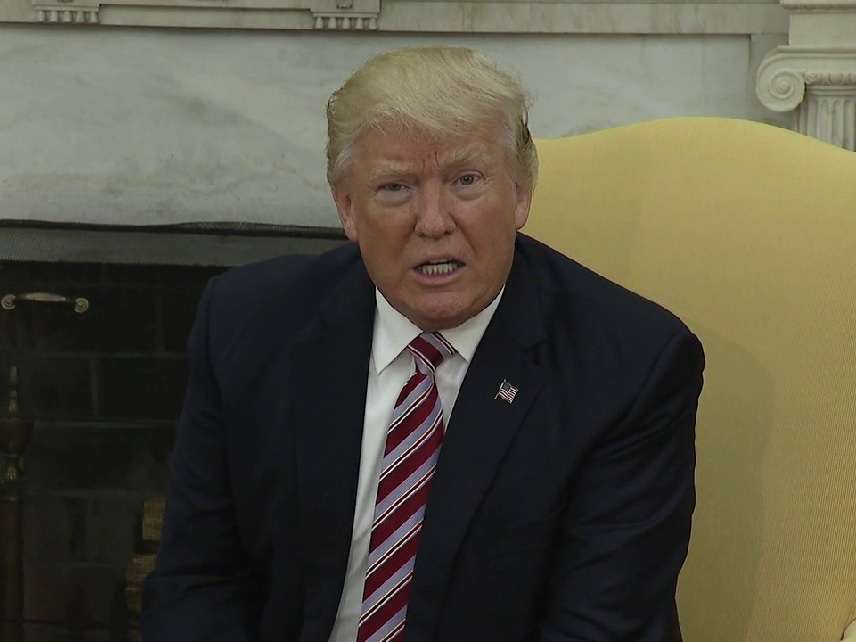Trump Still Sticking to Iran Deal
The right move.

Donald Trump has taken another step to secure the future of the 2015 Iran nuclear deal, reaffirming an exemption on sanctions authorized by Congress.
Trump's decision to maintain the nuclear deal is the right one. Remaining committed to the deal offers the U.S. the best opportunity to de-escalate tensions between the two countries. It also relieves us of all the responsibility of preventing Iran from acquiring nuclear weapons. The multilateral Iran deal also includes the United Kingdom, France, Germany, China, and Russia. Walking away from the deal would mean assuming more of a unilateral "world's policeman" role for the U.S., something Trump eschewed on the campaign trail.
Yesterday's was the most significant deadline, because allowing the sanctions exemption to lapse would violate the agreement and allow Iran to walk away from the deal.
The president is required every 90 days to certify whether Iran is in compliance with the nuclear deal. In previous rounds, the press described Trump as recertifying the deal "reluctantly," but recertify it he did. Next month, Trump must certify again. And despite his sometimes hostile rhetoric, it's unlikely Trump will decide against the certification.
Trump's support suggests the deal is not as critics charged. The deal is backed by two important members of his cabinet, Defense Secretary James Mattis and Secretary of State Rex Tillerson.
Mattis called the deal flawed in his confirmation hearing earlier this year, but stressed the importance of the U.S. remaining committed to it and to cooperating with its allies on its success. "When America gives her word, we have to live up to it and work with our allies," Mattis said at the time.
Tillerson, too, has no misconception the deal is perfect. He has also recently advanced the argument that Iran was "in default" on the deal because it was not living up to the "expectations" set out in the deal's aspirational preamble.
Tillerson may not have a lot of diplomatic experience, but in the business world preambles are also generally non-binding. If violating the spirit of the preamble is the best Tillerson can do, it remains unlikely the U.S. would certify Iran non-compliant.
Tillerson insisted Iran was "threatening the security of those in the region as well as the United States itself." Yet back in July, it was Tillerson who reportedly convinced Trump to stick to the deal.
"There are a lot of alternative means with which we use the agreement to advance our policies and the relationship with Iran, and that's what the conversation generally is around with the president as well," Tillerson said at the time.
Trump at the time predicted Iran would not be in compliance this time around.
The Trump administration has often sent mixed signals on the simplest issues involving the deal, but the hostile rhetoric appears tailored for domestic consumption rather than actual foreign policy direction.
There is also the question of what, exactly, the U.S. could do without the Iran deal. Unlike some arrangements, this deal does rely solely on the U.S. to succeed.
If Trump chooses to re-impose sanctions on the Iran, there is no guarantee Europe will follow. Given U.S.-Europe tensions in the Trump era, and given the desire of European companies to do business with Iran, it's improbable.
Leaving the deal would only place the U.S. at a disadvantage, diplomatically and economically. Trump would be choosing to handicap U.S. businesses competing with Europeans (hardly an "America First" position) while curtailing his diplomatic influence with Iran. Resolving issues like Iran's involvement in Syria or Iraq, would become far more difficult with the U.S. outside of the Iran deal.
This week's decision was the right one, and ought to be followed next month by another recertification of Iran's compliance.


Show Comments (22)